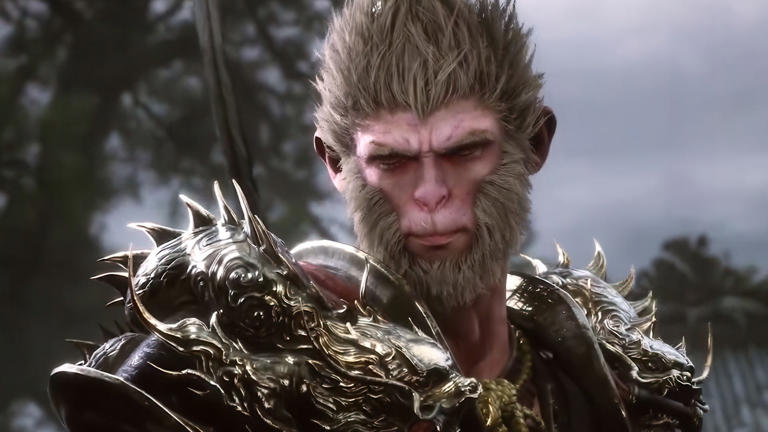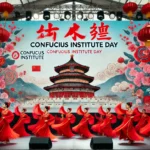Black Myth: Wukong has served as a milestone for Chinese video games, as well as in the country’s cultural diplomacy. It is an adaptation of the classic novel Journey to the West and has been praised for its visuals, advanced technology, and cultural depths. It represents China’s first true AAA game: a high-budget production rivaled by Western and Japanese standards.
The over 2 million concurrent players in the game at launch in Steam signifies increased capability for China to launch globally competitive video games. Black Myth: Wukong is touted as a cultural bridge to help bring Chinese stories and aesthetics to the world. Full of technical glitches and at times incoherent in its narrative, the game has nevertheless been acclaimed as groundbreaking—possibly a game-changer for soft power in China, exercised through games.
Read the full article below.
Will Black Myth: Wukong gaming mania mark a turning point for China’s soft power fortunes?
Success of action game based on 16th century classic seen to highlight how China can pursue its often ‘heavily assailed soft power agenda’
Data shared by industry trackers VG Insights showed the game had sold 10 million units by Saturday evening in China, with 3 million concurrent players across all platforms.
Asked whether a gamified Wukong could be considered to be an “ambassador” for China, foreign ministry spokeswoman Mao Ning said on Wednesday that a game seemingly inspired by the Chinese classic spoke “to the appeal of Chinese culture”.
However, she did not address whether this indicated any potential “diplomatic gains”.
According to Gejun Huang, assistant professor of media and communications at the Xian Jiaotong-Liverpool University, the triple-A premium game was a good soft power vessel offering “immense potential”.
“A new face of Journey to the West indicates elevated levels of cultural creativity and innovation, [which are] often the heavily assailed aspects of China’s soft power agenda,” said Huang, whose specialities are the gaming industry, cultural policy and media entrepreneurship.
Huang said the explosive and positive reactions towards the game embodied China’s championing of techno-nationalism – or the use of technology to project global influence, and complemented its existing cultural endeavours.
“I believe good cultural or content products should first naturally resonate with local cultural groups similar to the creators,” Feng told state news agency Xinhua. “If the quality is high enough and it endures for a sufficient period, it will naturally radiate to the overseas market we are talking about.”
“Ideally, this game’s contingent global popularity could attest to the enhanced persuasiveness of soft power discourses and legitimise a new way of delivering such discourses to broader global audiences,” Huang added.
In an interview with state-backed newspaper Global Times, Game Science’s artistic director Yang Qi said his team travelled across the country to research ancient architecture, including relics, temples, pagodas and stone carvings before reproducing them for the video game, which he described as a “digital archive” of the cultural heritage.
“On the other hand, there is a lack of evidence in China that featuring cultural heritage in games will boost players’ offline visits and related consumption.”
According to Sheng Zou, who teaches media at the Hong Kong Baptist University, discussions on the diplomatic potential of a cultural product needed to centre on a “more expansive notion of soft power”.
“Much of the discussion on soft power tends to focus on the nation-states as major actors, but in cases such as Wukong, corporate or non-state actors are the driving force,” Zou said.
According to Zou, China’s media and entertainment sector has seen many corporate-led globalisation efforts as Beijing seeks a more influential role in world media and culture.

“It fits in well with the state’s initiative in boosting its international communication, exemplified by the various ‘going out’ strategies in the media and cultural scene. Domestically, it also helps to shore up a sense of cultural confidence,” he said.
Beijing’s “going out” policy, introduced in 2000, encourages its enterprises to invest overseas and increase foreign direct investment.
“Non-state actors that operate on a market logic may have a better chance at winning people’s hearts and minds because their cultural influence is more subtle and appealing than things that are more overtly ideological or propagandistic,” Zou said.
Chinese web novels had attracted large global followings, he noted, with companies such as Dreame and iReader making a name for themselves within China and beyond.
Also, Singer 2024, the hit TV show with top-tier performers from China and abroad taking part in weekly sing-offs, has also made noise beyond the borders and been hailed by internet users as well as state-owned media as a global cultural platform.
According to Zou, although Black Myth: Wukong had the potential to inspire more positive impressions of China among a global audience, the change will be “subtle and gradual at best”.
Some users might just enjoy the game for reasons other than its Chinese cultural elements, he said, such as the gameplay, mechanics and player experience involved.







